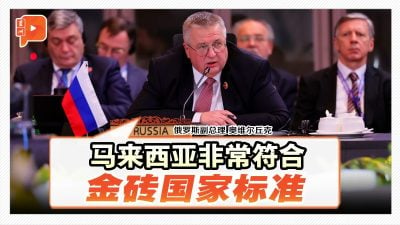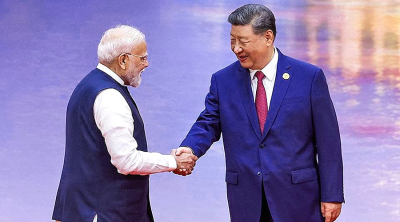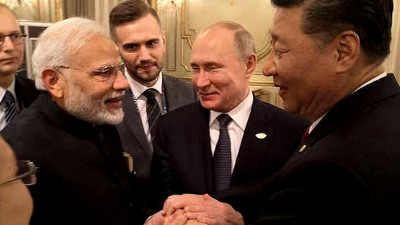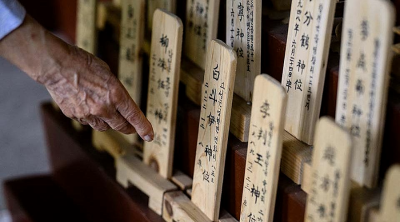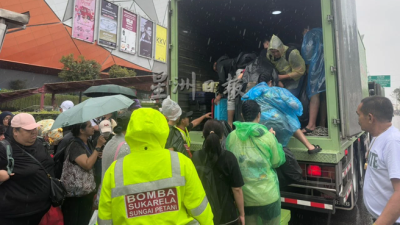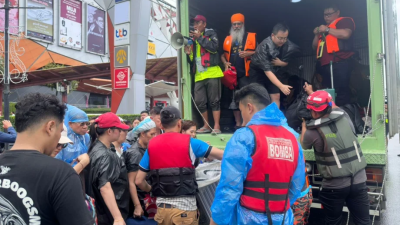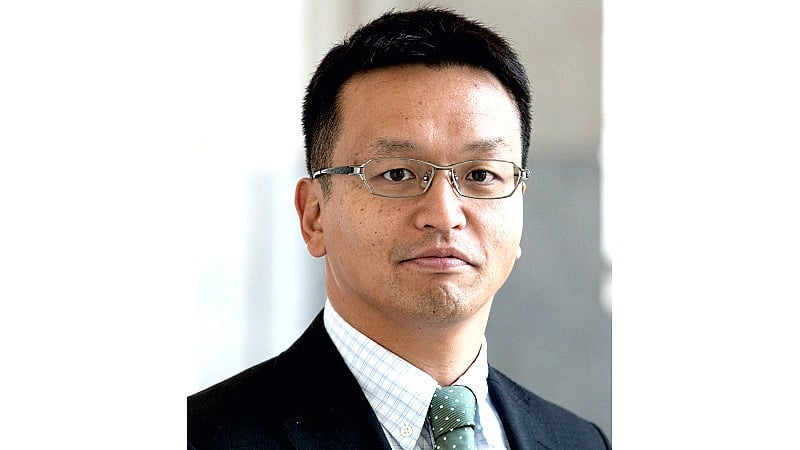
More than 30 years have passed since the end of the Cold War, but the antagonism between North and South Korea remains firmly entrenched.
It is also 70 years since the signing of the Korean Armistice Agreement.
The Korean war was initiated by North Korea in a surprise attack on South Korea, but in North Korea, it is framed as “a war of aggression by the American Empire and South Korea.”
Moreover, armistice day is called “Day of Victory in the Great Fatherland Liberation War” or “Victory Day,” because of the historical view that Kim Il-sung, the founding father, successfully defended the country.
This summer, Pyongyang hosted a grand military parade with high-level delegations from Beijing and Moscow, signaling the solidarity between North Korea, China, and Russia.
On July 26, the Chairman of the State Affairs Commission Kim Jong-un met with a military delegation of the Russian Federation, headed by Defense Minister Sergei Shoigu.
North Korean media referred to Putin and Shoigu as “comrades.”
While “comrade” has been used for leaders of socialist states like Chinese President Xi Jinping, this is the first time it was used about a Russian leader.
Shoigu also visited the “Weapons and Equipment Exhibition 2023” with Kim Jong-un as his personal guide.
It makes him look like a top seller of weapons. You would be hard-pressed to claim that Kim Jong-un has been active in foreign relations, considering behavior such as refusing to accept a meeting with the Mongolian president when the latter visited North Korea in the past.
You could say that the hospitality shown to Shoigu, who is not a head of government, was outstanding.
On July 28, the Rodong Sinmun consisted of 16 pages, 10 pages more than usual, with page 15 being filled with the previous day’s commemorative events of the 70th Anniversary of the Armistice.
At the stand during the military parade on Kim Il Sung Square in Pyongyang, there were Shoigu to the left of Kim Jong-un, with Li Hongzhong, Politburo member of the Central Committee of the Chinese Communist Party, on the right.
What stood out in North Korean media reports was a photo featuring Kim Jong-un and Shoigu next to each other.
At the Armistice 60th Anniversary Parade held 10 years ago, Li Yuan-chao, Vice President of China, stood next to Kim Jong-un in promotion of friendship between China and North Korea.
The People’s Volunteer Army fought in the Korean War as well as signed the armistice, but the Soviet Union was not directly involved.
Stalin wanted to avoid a third world war, this time with the United States.
Nonetheless, the Russian delegation was invited this time likely because North Korea wants to show that North Korea is cooperating with China and Russia as its confrontation with the United States and South Korea deepens, clarifying the composition of the “New Cold War.”
Of particular note was that Shoigu was received more favorably than the Chinese delegation, with whom North Korea is supposed to have a “blood alliance.”
It was widely reported that Shoigu was invited to Kim Jong-un’s “office” and that they had a tête-à-tête and even a luncheon.
The background to this warm reception of Shoigu is probably the issue of the rank of the delegation leaders dispatched from China and Russia.
North Korea would have liked to have at least had a Standing Committee class member of the Politburo, if not Xi Jinping himself, in attendance.
In reality, the official dispatched was Li Hongzhong, ranked no higher than 10th. The North Korean side might have taken issue with this.
Moreover, there was mention of “imperialist coercive power and tyranny” in the meeting between Kim Jong-un and Shoigu, demonstrating a “strategic and militant relationship between North Korea and Russia.”
By comparison, the tone of the discussions on China-North Korea relations was mild.
China no longer calls the Korean War a “war of aggression by the American Empire and South Korea,” so it is very likely that differing views on the United States motivated North Korea to emphasize Russia instead.
Kim Jong-un also met with the Chinese delegation on the 28th, but it should be noted that there have been no reports of anyone else from the North Korean side attending the meetings with either Russia or China.
Looking at the photos in the Rodong Sinmun, the Russia-North Korea meeting was five-and-one, while the China-North Korea meeting was eight-and-one, with Kim Jong-un keeping only an interpreter with him.
It might be that both meetings dealt with quite sensitive matter. Going forward, attention should be paid to any arms deals between Russia and North Korea.
ADVERTISEMENT
ADVERTISEMENT






